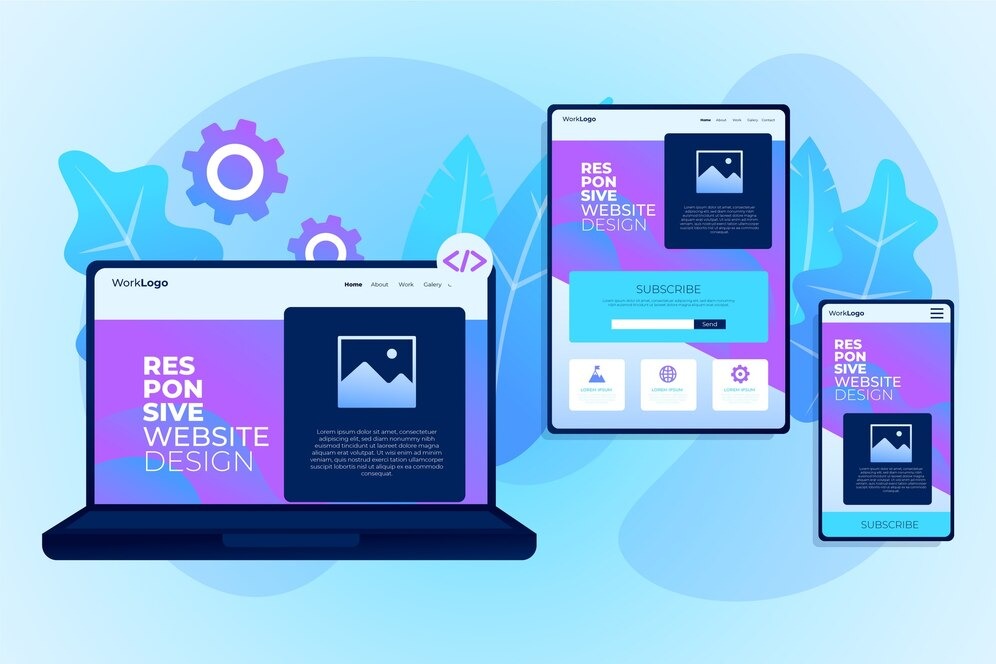Highlights
- Launched in May 2018 by Google Registry, .app is renowned for being the first TLD to enforce HTTPS encryption.
- As one of the oldest and most recognized TLDs, .com domains are synonymous with credibility and professionalism.
- The mobile app industry generated $249.9 billion in revenues in 2023, driven by the widespread adoption of smartphones and tablets.
- With 61% of users preferring mobile-friendly sites, static content is essential for presenting comprehensive information efficiently.
In the last part of 2023, 359.8 million domain names were registered across top-level domains. This marked an increase of 0.6 million domain registrations, or 0.2%, from the third quarter of 2023.
Are you launching a new website? One of your first decisions is choosing a domain name: should it end with .app vs .com? This choice can impact your online presence and how users perceive your brand.
In this post, we’ll explore the benefits and considerations of each domain extension, providing clarity to help you make an informed decision for your website’s success.
What Is a .App Domain Name?
Launched in May 2018 by Google Registry, .app is a distinctive top-level domain (TLD) known for its pioneering security features. It is the first TLD to enforce HTTPS encryption across all websites, enhancing security and trustworthiness by default.
Pros
- Modern Appeal
Using a .app domain can signal to users that the company is up-to-date with modern technology trends, which can enhance the company’s professional image.
- User Signals
Users searching for app-related content might be more inclined to click on a .app domain, which can improve click-through rates and user engagement metrics, further boosting SEO.
- Greater Security
Security is a paramount feature of .app domains. By mandating HTTPS encryption, .APP domains ensure that all data transmitted between the user’s browser and the website is secured, protecting against data interception and enhancing user confidence.
- Easy Availability
Compared to heavily saturated TLDs like .com, .app offers a higher likelihood of securing your preferred domain name. This can be advantageous for businesses or persons looking to establish a clear online presence with a memorable domain name.
Cons
- Limited Recognition
Despite its benefits, the .app domain might not be as widely recognized as .com. This could impact user recall and trust, especially among less tech-savvy audiences unfamiliar with newer TLDs.
- Cost
The cost of registering a .app domain can be higher than traditional extensions, especially for premium names or during the initial registration phases. Moreover, the mandatory HTTPS requirement means additional costs for SSL certificates, although many domain registrars and hosting providers offer free options now.
- Complexity
For users unfamiliar with SSL certificates and website security, the mandatory HTTPS requirement can add a layer of complexity. Implementing and maintaining HTTPS requires some technical knowledge.
What is a .com Domain Name?
Introduced in January 1985, .com is one of the internet’s oldest and most venerable top-level domains (TLDs). Initially designated for commercial organizations, its name reflects its purpose: to denote commercial entities.
Pros
- Brand Authority
The .com extension is a globally recognized and trusted top-level domain (TLD). Websites with .com domains are often perceived as more credible and authoritative.
- Search Engine Preference
Although search engines claim to treat all TLDs equally, .com domains tend to perform better in search engine results pages due to their widespread use and high number of backlinks.
- Trust Building
.com domains are associated with established businesses, conveying credibility and professionalism. Choosing a .com domain can bolster trust among visitors, reassuring them of your site’s legitimacy.
- Resale Potential
.com domains often have higher resale value compared to other TLDs. Premium .com domains can be sold significantly, making them a good investment.
Cons
- Domain Scarcity
Due to the universal recognition of .com domains, finding a relevant .com domain can be challenging. Most demanding domain names have already been registered.
- Higher Costs
Premium .com or high-demand domains can be expensive, especially if bought from a reseller.
- Cybersquatting
The popularity of .com domains makes them a target for cybersquatters registering similar domains to extort money from businesses or redirect traffic for malicious purposes.
.App vs .Com Domains: Which One Is the Best?
The best choice between Domain.app or DomainApp.com depends on your needs and goals. Here are some points that will help you make the right decision:
- Business Focus: Consider the primary focus of your website or business. If you’re primarily promoting a mobile app and want to establish a clear connection with app development, .app might be more suitable.
- Brand Identity: Evaluate how each domain extension aligns with your brand identity and long-term goals. .com is versatile and widely accepted, while .app offers specificity and can help in niche marketing.
- Audience Perception: Consider how your target customers perceive each domain extension. .com may offer broader appeal and trustworthiness, whereas .app can appeal more directly to tech-savvy users interested in mobile apps.
- Market Competition: Check availability and competition for your desired domain name under both extensions. While .com domains can be more competitive and harder to find, .app domains may offer more availability and options.
App vs Site: Are they the Same? What’s the Difference?

Let’s get a quick overview of app vs site and how they differ.
What is an App?
Apps are software pieces users install on their mobile devices for specific purposes. They are highly interactive, presenting information bit by bit as needed rather than all at once. The mobile app industry has boomed with $249.9 billion in revenues in 2023, driven by the popularity of smartphones and tablets.
Types of Mobile Apps
- Native Apps: Developed separately for iOS and Android.
- Hybrid Apps: Created using platforms like Xamarin, functioning across multiple OS with one code base.
Popular Mobile App Categories Include
- Productivity: Focus on time management and business efficiency.
- Lifestyle and Entertainment: Growing with apps for meditation, fitness, socialization (Tinder, Bumble, Instagram), and video streaming (Netflix, Amazon Prime).
- M-commerce: Facilitating easy mobile shopping experiences with apps like Amazon and eBay.
- Travel: Revolutionizing travel with apps like Google Maps, Airbnb, and Uber, essential for booking and navigation without an Internet connection.
What Is a Website?
Websites consist of web pages with static content (text, images, video) accessed via web browsers. They are less dynamic than apps but excel at presenting large volumes of information at once. Mobile-friendly websites are crucial, as 61% of users won’t return to or purchase from a non-mobile-friendly site. 40% of users end up using these kinds of websites.
Implementing a Mobile Website
- Separate Mobile Site: Redirects users from a standard URL to a mobile-specific version (e.g., ‘m.company.com’).
- Responsive Design: Adapts content to any device screen size, ensuring a seamless user experience across platforms.
Final Words
In short, .com domains offer universal recognition and versatility across industries while .app domains excel in niche appeal and cutting-edge security features like mandatory HTTPS encryption. Whether you prioritize broad market reach or specific app-related branding, the decision between .app vs .com should align with your strategic objectives for online presence and audience engagement.
Also, if you’re looking for a top-notch company to build your company’s website from scratch and make it high-ranking, contact Tambena Consulting. We offer the best website maintenance and custom web development services to boost your site’s visibility and ranking.





